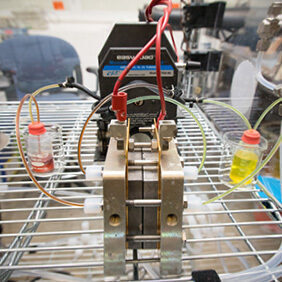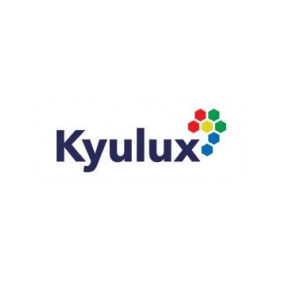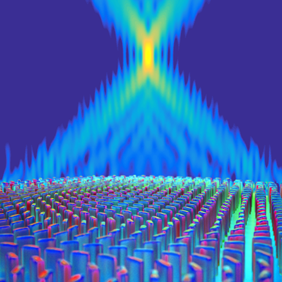
 Harvard Grid Accelerator
Harvard Grid Accelerator
Successful Accelerator-funded Technologies
The Physical Sciences & Engineering (PSE) Accelerator is now the Grid Accelerator. With additional resources and funding, the Grid Accelerator will continue to expedite the commercialization of Harvard innovations.
As of August 2022, $3.0 million in grants have been awarded to 32 projects from the Faculty of Arts and Sciences (FAS) and the Harvard John A. Paulson School of Engineering and Applied Sciences (SEAS). These projects have so far resulted in 16 new startups that have collectively raised more than $150 million in financing to commercialize the resulting innovations. A few of these startups are highlighted below.

Functional Materials and a Novel 3D Printing Platform
Project: With PSE Accelerator funding, the lab of Professor Jennifer A. Lewis developed new functional materials and a novel 3D-printing platform with the potential to enable 3D printing of athletic shoes and high-tech textiles.
Success: The Accelerator funding led to the launch of a startup, Voxel8, which licensed the core technology developed under this program. The company raised $12M in Series A funding; was named a Gold Winner of the 2014 MassChallenge; was a 2015 Edison Gold Award Winner; and was named "one of the 9 best ideas from CES 2015" by Fast Company.

Robotic Piece-Picking
Project: Among the initial group of PSE Accelerator fund recipients, this project in the lab of Professor Robert D. Howe led to the development of robotic systems that can grasp a wide variety of items automatically, without calibration or parameter-tuning. The technology has the potential to dramatically improve product handling by reducing costs and increasing speed in e-commerce warehouses.
Success: This Accelerator project led to the launch of RightHand Robotics. The company has developed a family of integrated robotic piece-picking solutions for logistics/fulfillment and raised a Series B financing in December 2018.

Flow Battery for Grid-Scale Energy Storage
Project: Continuing a collaboration between the labs of Professors Michael Aziz and Roy Gordon, PSE Accelerator funding enabled the development of a quinone-based aqueous flow battery that could dramatically reduce the cost of large-scale, stationary electrical energy storage.
Success: The technology was licensed to Green Energy Storage, a company based in Italy.

Materials Discovery Platform
Project: With PSE Accelerator funding, the lab of Professor Alan Aspuru-Guzik developed a materials discovery platform that leverages advances in quantum chemistry and machine learning to identify advanced materials for a range of high-value markets.
Success: Harvard has licensed the software platform to Kyulux, Inc., a provider of materials for OLED displays.

Photonic Integrated Circuits
Project: With support from the PSE Accelerator, the lab of Professor Marko Loncar made pioneering innovations in the nanofabrication and integration of lithium niobate (LiNbO3) structures. LiNbO3-based photonic products may address needs in telecommunication, high-performance computing, optical machine learning circuits, and quantum computers.
Success: This Accelerator project led to the launch of a startup, HyperLight Corp, to commercialize integrated photonic chips for data center, datacom, and quantum computing applications. The company has raised a Series A.

Optimization of Energy Resources
Project: PSE Accelerator funding supported Professor Na Li's research group in developing an AI-powered energy/sustainability management platform that incorporates real-time CO2 signals from the grid into the optimization of energy resources.
Success: A startup, Singularity Energy, launched to commercialize this technology and was selected to participate in the Greentown Labs Bold Ideas Challenge in 2018.

Flat Optics for Imaging and Illumination
Project: Researchers led by Professor Federico Capasso developed metalens technology—flat optics on a chip—that is poised to enable new types of ultracompact devices for imaging, 3D sensing, AR/VR, and more. The PSE Accelerator provided support as the technology approached commercial readiness.
Success: A startup, Metalenz, Inc., licensed a portfolio of metalens technology from Harvard. The company announced $10M in funding in February 2021.
